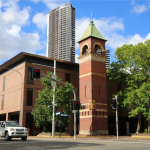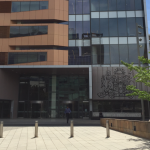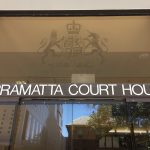Lawyers for Bail Applications at Parramatta Bail Court

Bail is a promise to attend court on the next court date.
It can be unconditional, or come with conditions such as reporting to a police station on specific days, not associating with certain persons or attending certain places, and depositing an amount of money as security.
A person who deposits security is known as a surety.
What factors does a court consider when deciding whether to grant bail?
There are many factors a court takes into account when deciding whether to grant bail.
These considerations are outlined in section 18 of the Bail Act 2013 (NSW), and are:
(a) the accused person’s background, including criminal history, circumstances and community ties,
(b) the nature and seriousness of the offence,
(c) the strength of the prosecution case,
(d) whether the accused person has a history of violence,
(e) whether the accused person has previously committed a serious offence while on bail (whether granted under this Act or a law of another jurisdiction),
(f) whether the accused person has a history of compliance or non-compliance with bail acknowledgments, bail conditions, apprehended violence orders, parole orders, home detention orders, good behaviour bonds or community service orders, intensive correction orders, community correction orders, conditional release orders, non-association and place restriction orders or supervision orders.
(f1) if the bail authority is making the assessment of bail concerns because the accused person has failed or was about to fail to comply with a bail acknowledgment or a bail condition, any warnings issued to the accused person by police officers or bail authorities regarding non-compliance with bail acknowledgments or bail conditions,
(g) whether the accused person has any criminal associations,
(h) the length of time the accused person is likely to spend in custody if bail is refused,
(i) the likelihood of a custodial sentence being imposed if the accused person is convicted of the offence,
(i1) if the accused person has been convicted of the offence, but not yet sentenced, the likelihood of a custodial sentence being imposed,
(j) if the accused person has been convicted of the offence and proceedings on an appeal against conviction or sentence are pending before a court, whether the appeal has a reasonably arguable prospect of success,
(k) any special vulnerability or needs the accused person has including because of youth, being an Aboriginal or Torres Strait Islander, or having a cognitive or mental health impairment,
(l) the need for the accused person to be free to prepare for his or her appearance in court or to obtain legal advice,
(m) the need for the accused person to be free for any other lawful reason,
(n) the conduct of the accused person towards any victim of the offence, or any family member of a victim, after the offence,
(o) in the case of a serious offence, the views of any victim of the offence or any family member of a victim (if available to the bail authority), to the extent relevant to a concern that the accused person could, if released from custody, endanger the safety of victims, individuals or the community,
(p) the bail conditions that could reasonably be imposed to address any bail concerns in accordance with section 20A,
(q) whether the accused person has any associations with a terrorist organisation (within the meaning of Division 102 of Part 5.3 of the Commonwealth Criminal Code),
(r) whether the accused person has made statements or carried out activities advocating support for terrorist acts or violent extremism,
(s) whether the accused person has any associations or affiliation with any persons or groups advocating support for terrorist acts or violent extremism.
A court will weigh these factors when deciding whether granting bail presents an ‘unacceptable risk’.
Parramatta bail court
There are many courts across the Sydney metropolitan area, as well as in other areas such as Wollongong, Gosford, Newcastle and regional New South Wales that hear and determine bail applications.
However, on weekends and during holiday periods, bail applications in Sydney are heard in Parramatta Bail Court, which is located in the Children’s Court building at 2 George Street, Parramatta.
The latest standard operating procedures for bail applications in 2020/2021 outline provisions for making bail applications by way of audio/visual link, which enables applications to occur when the magistrate or authorised justice, the bail applicant (ie defendant) and lawyer are in different physical locations – rather than all being inside the courtroom.
Going to Parramatta Court for a bail application?
If your other one has been arrested by police, or is facing an arrest, on the weekend or during a holiday period, call Sydney Criminal Lawyers on (02) 9261 8881 to engage the services of specialist criminal defence lawyers who are vastly experienced in representing bail applicants in Parramatta Bail Court.
Our team has an exceptional track record of achieving bail for serious and complex cases, and our Parramatta offices are conveniently located at 3/27 Hunter Street, Parramatta; across the road from the Justice Precinct Carpark.
We offer fixed fees for all bail applications.
More information on Parramatta
If you are located near Parramatta or need a professional lawyer to represent you at a Parramatta Court, find more information on the local area below or call us 24/7 on (02) 9261 8881.






